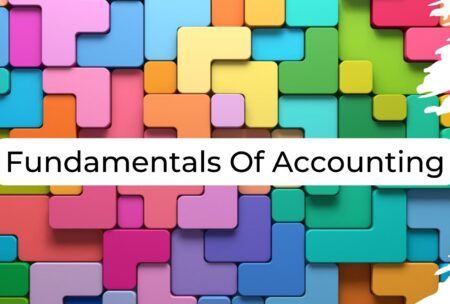Want to understand financial statements? Start with the fundamentals of accounting. Enroll now and boost your career. Read more.
I am Imran Zakir experienced accounting teacher with over 15 years of experience in the field of accounting and finance. I hold a Master's degree in Business & Accounting from The University of Notre Dame Australia. Before joining The University of Technology & Applied Sciences as an accounting teacher, I worked for an accounting firm, where I gained valuable experience in financial analysis and financial reporting. Teaching Approach: My teaching approach is focused on creating an engagi
Access all courses in our library for only $9/month with All Access Pass
Get Started with All Access PassBuy Only This CourseAbout This Course
Who this course is for:
- Accounting students
- Business owners
- Aspiring accountants
What you’ll learn:
- How to record, summarize, and report financial transactions in a company’s financial statements
- How to organize and compile accounting transactions in a ledger
- The preparation and use of a trial balance
- The concept of accrual accounting
Requirements:
- Basic mathematics and analytical skills are helpful
Transactions: The accurate recording and documentation of business transactions are essential for sound financial reporting and decision-making.
Accounts: Accounts are used to classify, record, and track the financial operations of a business or organization.
Double-entry accounting: A bookkeeping method requiring every transaction to be balanced by equal and opposite entries, ensuring the accounting equation remains balanced.
Debits and credits: The two types of entries made for each financial transaction in the double-entry accounting system.
Chart of accounts: A complete list of all accounts used by a business to document financial transactions.
Journal entries: The initial recording of financial transactions in a chronological order.
Ledger: A detailed record of all financial transactions for each account.
Trial balance: A summary of all debit and credit balances in the general ledger accounts, prepared at the end of an accounting period.
Financial statements: Documents providing information about a company’s financial performance and position.
Accruals and deferrals: Accounting concepts used to record transactions in a company’s financial statements based on when revenue is earned or expenses incurred.
Adjusting entries: Entries made at the close of an accounting period to ensure financial statements accurately represent the company’s financial position.
Fuel your passion with knowledge. Explore my courses and ignite your success.
Our Promise to You
By the end of this course, you will have a solid understanding of accounting fundamentals.
10 Day Money Back Guarantee. If you are unsatisfied for any reason, simply contact us and we’ll give you a full refund. No questions asked.
Get started today!
Course Curriculum
| Section 1 - Introduction | |||
| Introduction | 00:00:00 | ||
| Section 2 - Basic Concepts Of Accounting | |||
| Chart Of Accounts | 00:00:00 | ||
| Analyse Transaction | 00:00:00 | ||
| Debit And Credit Rule | 00:00:00 | ||
| Recording Of Transaction In The Journal | 00:00:00 | ||
| Posting To The Ledger | 00:00:00 | ||
| Trial Balance | 00:00:00 | ||
| Accrual Accounting Concept | 00:00:00 | ||
| Adjusting Entries For Prepaid Expenses And Unearned Revenue | 00:00:00 | ||
| Adjusting Entries For Accrued Income And Accrued Expense | 00:00:00 | ||
| Preparation Of Balance Sheet | 00:00:00 | ||
| Preparation Of Income Statement | 00:00:00 | ||
| Preparation Of Statement Of Cash Flows | 00:00:00 | ||
| Assignment Fundamentals of Accounting | 00:00:00 | ||
About This Course
Who this course is for:
- Accounting students
- Business owners
- Aspiring accountants
What you’ll learn:
- How to record, summarize, and report financial transactions in a company’s financial statements
- How to organize and compile accounting transactions in a ledger
- The preparation and use of a trial balance
- The concept of accrual accounting
Requirements:
- Basic mathematics and analytical skills are helpful
Transactions: The accurate recording and documentation of business transactions are essential for sound financial reporting and decision-making.
Accounts: Accounts are used to classify, record, and track the financial operations of a business or organization.
Double-entry accounting: A bookkeeping method requiring every transaction to be balanced by equal and opposite entries, ensuring the accounting equation remains balanced.
Debits and credits: The two types of entries made for each financial transaction in the double-entry accounting system.
Chart of accounts: A complete list of all accounts used by a business to document financial transactions.
Journal entries: The initial recording of financial transactions in a chronological order.
Ledger: A detailed record of all financial transactions for each account.
Trial balance: A summary of all debit and credit balances in the general ledger accounts, prepared at the end of an accounting period.
Financial statements: Documents providing information about a company’s financial performance and position.
Accruals and deferrals: Accounting concepts used to record transactions in a company’s financial statements based on when revenue is earned or expenses incurred.
Adjusting entries: Entries made at the close of an accounting period to ensure financial statements accurately represent the company’s financial position.
Fuel your passion with knowledge. Explore my courses and ignite your success.
Our Promise to You
By the end of this course, you will have a solid understanding of accounting fundamentals.
10 Day Money Back Guarantee. If you are unsatisfied for any reason, simply contact us and we’ll give you a full refund. No questions asked.
Get started today!
Course Curriculum
| Section 1 - Introduction | |||
| Introduction | 00:00:00 | ||
| Section 2 - Basic Concepts Of Accounting | |||
| Chart Of Accounts | 00:00:00 | ||
| Analyse Transaction | 00:00:00 | ||
| Debit And Credit Rule | 00:00:00 | ||
| Recording Of Transaction In The Journal | 00:00:00 | ||
| Posting To The Ledger | 00:00:00 | ||
| Trial Balance | 00:00:00 | ||
| Accrual Accounting Concept | 00:00:00 | ||
| Adjusting Entries For Prepaid Expenses And Unearned Revenue | 00:00:00 | ||
| Adjusting Entries For Accrued Income And Accrued Expense | 00:00:00 | ||
| Preparation Of Balance Sheet | 00:00:00 | ||
| Preparation Of Income Statement | 00:00:00 | ||
| Preparation Of Statement Of Cash Flows | 00:00:00 | ||
| Assignment Fundamentals of Accounting | 00:00:00 | ||




GREAT COURSE
A LITTLE DULL AT BEGINNING BUT STICK WITH IT!
Great course, learned a lot!
Easy to follow and understand! Great course for those looking to learn more